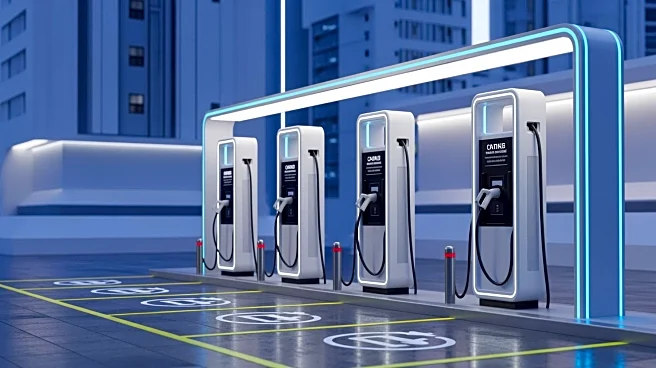What's Happening?
Hyundai and Kia have reported a significant decline in their electric vehicle (EV) sales for October, following the expiration of the $7,500 U.S. EV tax credit. Hyundai's IONIQ 5 sales dropped to 1,642 units from 4,498 in October 2024, and Kia's EV6 sales fell
to 508 units from 1,732 in the same period. The removal of the tax credit led to a rush in EV purchases in the third quarter, leaving fewer buyers in the market for October. This trend highlights the impact of government incentives on consumer purchasing behavior in the EV market.
Why It's Important?
The decline in sales for Hyundai and Kia underscores the critical role that government incentives play in the adoption of electric vehicles. The loss of the tax credit has not only affected these automakers but also signals potential challenges for the broader U.S. EV market. As the industry seeks to transition from traditional combustion engines to electric, such incentives are pivotal in maintaining sales momentum. The drop in sales could slow the progress towards reducing carbon emissions and achieving sustainability goals, affecting both the automotive industry and environmental policy objectives.
What's Next?
As the market adjusts to the absence of the tax credit, automakers may need to explore alternative strategies to stimulate sales, such as offering their own incentives or focusing on cost reductions. The industry will be closely watching for any potential policy changes or new incentives that could be introduced to support EV adoption. Additionally, consumer behavior in the coming months will be critical in determining the long-term impact of the tax credit removal on the EV market.















